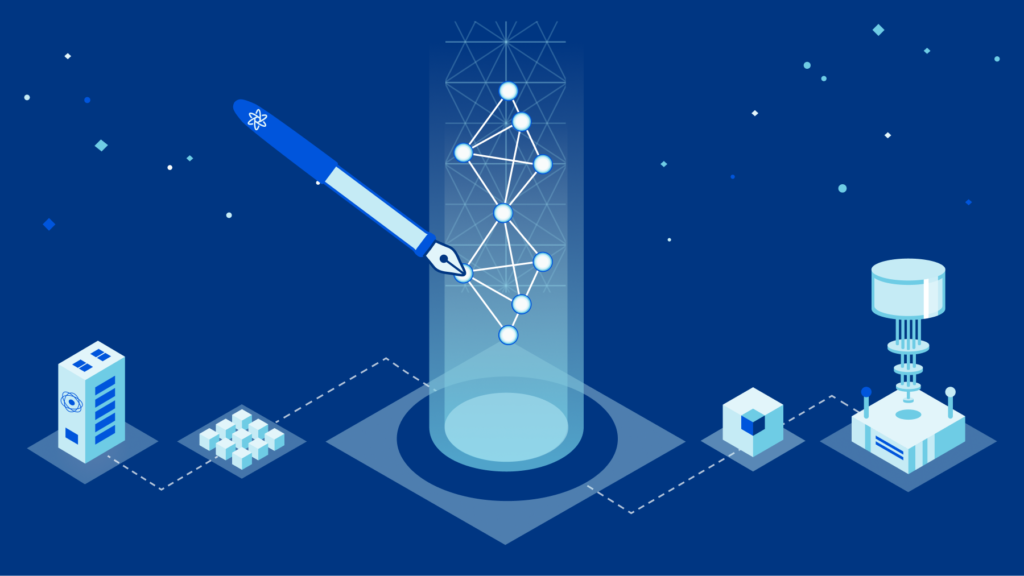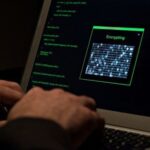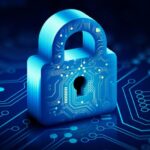Quantum-resistant authentication
It is more important than ever to protect our online identities in a time when digital interactions rule our everyday lives. Passwords have been the primary means of digital authentication for many years, but with the impending arrival of quantum computing, cybersecurity is about to undergo a significant change. This article investigates how, in a world powered by quantum technology, authentication will evolve beyond passwords.
Table of Contents

The Development of Quantum Information
Quantum-resistant authentication
The computational power has advanced radically with quantum computing. Quantum computers employ qubits, which are entities that can exist in several states concurrently due to quantum mechanics, in contrast to classical computers that process information using bits. Because of this property, quantum computers are able to tackle complicated problems faster than even the most sophisticated classical supercomputers.
Dangers to Conventional Cryptography
Quantum-resistant authentication
The possibility that quantum computing will weaken conventional cryptography techniques is one of the most important implications. Sensitive information and communications are now secured by algorithms like RSA and ECC, however techniques like Shor’s algorithm, which are used by quantum computers, may expose them to attacks. To protect the integrity of digital transactions and communications, quantum-resistant cryptography must be used instead of the current method.
Cryptography Resistant to Quantum
Quantum-resistant authentication
In an effort to counter the threats presented by quantum computing, scientists are working hard to create cryptographic algorithms and protocols that are resistant to quantum errors. In a world powered by quantum technology, these algorithms are made to survive attacks from quantum computers, protecting the integrity and secrecy of critical data. The use of quantum-resistant cryptography is one proactive way to reduce the risks connected to the developments in quantum computing.
Authentication with multiple factors (MFA)
Quantum-resistant authentication
Multifactor authentication (MFA) systems are the way of the future for authentication, together with quantum-resistant cryptography. MFA uses a variety of factors, including passwords, physical tokens (like smart cards) and biometric information (like fingerprints and facial recognition), to confirm users’ identities. By making it more difficult for attackers to compromise multiple authentication elements, MFA dramatically improves security over passwords alone.
Verification using Biometrics
Quantum-resistant authentication
The use of biometric authentication presents a viable substitute for conventional passwords. Through the use of distinctive biological traits like fingerprints, iris patterns, or facial features, biometric identification offers a highly customized and safe means of identity verification. In the age of quantum computing, biometric data offers a reliable method of safeguarding digital identities since it is hard to copy or steal.
Biometrics Behavioral
Quantum-resistant authentication
Behavioral biometrics examines trends in how people use electronics, like touchscreen gestures, mouse motions, and typing speed. Through persistent observation and analysis of these patterns of activity, authentication systems are able to generate a distinct profile for every user. By identifying abnormalities and unauthorized access attempts based on departures from known behavioral patterns, this method offers an extra degree of security.
Hard Copy Coins and Distributed Identity
Quantum-resistant authentication
Tokens that are tactile, like USB keys or smart cards, provide additional authentication to digital techniques. These tokens strengthen authentication procedures against assaults enabled by quantum computing by requiring possession in addition to knowledge or biometric information. In addition, decentralized identification solutions built on blockchain technology improve privacy and security in the age of quantum computing by empowering people to safely maintain and control their digital identities independently of centralized authority.
Educating Organizations and Users
Quantum-resistant authentication
Education and awareness are essential for maintaining successful cybersecurity procedures when authentication methods change. To reduce risks, users and organizations need to be aware of the advantages and disadvantages of new authentication methods and know how to properly apply them. We can all work together to build defenses against emerging threats, like those posed by quantum computing, by promoting a culture of cybersecurity awareness.
In summary
Quantum-resistant authentication
In a quantum world, authentication will take on many different forms and be highly dynamic. It includes decentralized identity solutions, behavioral biometrics, multifactor authentication (MFA) systems that integrate biometrics and physical tokens, and quantum-resistant cryptography. We can handle the challenges presented by quantum computing while protecting the integrity and security of our digital identities in a world that is becoming more linked by embracing these breakthroughs and remaining vigilant against new threats.


